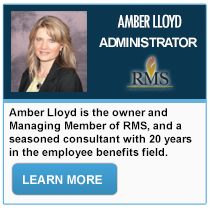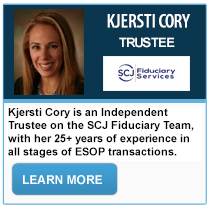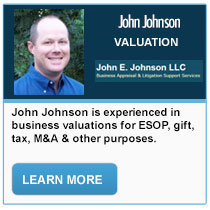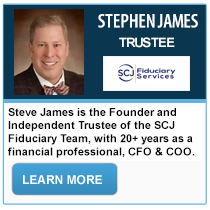 An ESOP is a way to transfer ownership of a company while greatly reducing the tax burden relative to a third-party acquisition. ESOPs were designed with tax benefits in mind for business owners who sell to their employees, which makes it a great estate planning tool, as well. It
is also a welcome benefit for employees & executives, but it's different from other retirement accounts. Ask our advisors:
An ESOP is a way to transfer ownership of a company while greatly reducing the tax burden relative to a third-party acquisition. ESOPs were designed with tax benefits in mind for business owners who sell to their employees, which makes it a great estate planning tool, as well. It
is also a welcome benefit for employees & executives, but it's different from other retirement accounts. Ask our advisors:
- How to start an ESOP;
- How to comply with Employee Retirement Income Security Act (ERISA) regulations;
- How to determine employee eligibility;
- How to set up benefit tracking for each employee;
- How to calculate contribution and payout amounts;
- How to communicate the details of your ESOP plan to your employees;
- How to avoid putting excessive pressure on company cash flow.
ESOPMarketplace: A listing of the nation's best ESOP Legal, Valuation, Record-Keeping Advisors & ESOP Trustees
What Are ESOPs?
...a powerful business tool that will help you keep your employees happy, keep your overhead costs low, and keep your company on the path of growth.
Learn more » |
Start An ESOP
Consulting a qualified and experienced ESOP advisor on the benefits and varieties of ESOP plans can be one of the shrewdest business decisions you have ever made.
Learn more » |
An ESOP is a way to empower employees of a company to become vested owners of their workplace.
An ESOP a tax-deferred combination stock option and retirement plan for employees. The ESOP is set up as a trust that borrows money and uses it to buy company shares, putting them in the account of every plan participant. Plan participants must be company employees; however, not all company employees are required to be plan participants.
An ESOP can buy all or part of a company.
ESOPs are commonly used by retiring business owners as an estate planning strategy, to sell their business to its own employees. Many small business owners are reluctant to sell to a third party, for reasons such as taxes, lengthy earn-out agreements or fear of layoffs among employees.
The plan is not just for small businesses, though - some large C corporations have also set up ESOPs as benefit plans for their employees; notable companies include Chrysler and United Airlines.
An ESOP is a defined-contribution plan, but not a defined-benefit plan; there is no guaranteed payout.
According to studies in several states, employees with ESOP accounts have considerably more in retirement savings than employees with other benefit plans, such as 401(k)s. However, ESOP law is written in a way to encourage ESOPs to invest in company stock, which makes the plan relatively undiversified; a plan that over-invests in stock can risk losing a large portion of the employees' retirement if the company ends up in trouble. For this reason, many ESOP companies offer other qualified retirement plans, such as 401(k)s or IRAs.
An ESOP is not exclusive. Employees can contribute to more than one retirement account at a time; in fact, the majority of ESOP companies offer employees other types of retirement accounts as well.
These are only some of the uses and features of an Employee Stock Ownership Plan. To read more, visit us at ESOPMarketplace.com.
ESOP Marketplace is the premier source to find ESOP Advisors throughout the United States, including your Hometown. Our Advisors are available in:
|
New York Los Angeles Chicago Philadelphia Dallas-Ft. Worth San Francisco-Oakland-San Jose Boston Atlanta Washington, DC Houston Detroit Phoenix Tampa-St. Petersburg Seattle-Tacoma Minneapolis-St. Paul Miami-Ft.Lauderdale Cleveland-Akron Denver Orlando-Daytona Beach-Melbourne Sacramento-Stockton-Modesto St. Louis Portland, OR Pittsburgh Charlotte, NC Indianapolis Baltimore |
Raleigh-Durham San Diego Nashville Hartford-New Haven Kansas City Columbus, OH Salt Lake City Cincinnati Milwaukee Greenville-Spartanburg-Asheville-Anderson San Antonio West Palm Beach-Ft. Pierce Grand Rapids-Kalamazoo-Battle Creek Birmingham Harrisburg-Lancaster-Lebanon-York Las Vegas Norfolk-Portsmouth-Newport News Albuquerque-Santa Fe Oklahoma City Greensboro-High Point-Winston-Salem Jacksonville, FL Memphis Austin |
Louisville Buffalo Providence-New Bedford New Orleans Wilkes Barre-Scranton Fresno-Visalia Little Rock-Pine Bluff Albany-Schenectady-Troy Richmond-Petersburg Knoxville Mobile-Pensacola Tulsa Ft. Myers-Naples Lexington Dayton Charleston-Huntington Flint-Saginaw-Bay City Roanoke-Lynchburg Tucson Wichita-Hutchinson Green Bay-Appleton Des Moines-Ames Honolulu Toledo Springfield, MO Spokane Omaha |
Columbia, SC Rochester, NY Syracuse Huntsville-Decatur Champaign-Springfield-Decatur Shreveport Madison Chattanooga Harlingen-Weslaco-Brownsville-McAllen Cedar Rapids-Waterloo-Iowa City-Dubuque South Bend-Elkhart Jackson, MS Colorado Springs-Pueblo Tri-Cities, TN-NC-VA Burlington-Plattsburgh Waco-Temple-Bryan Baton Rouge Savannah Davenport-Rock Island-Moline El Paso Charleston, SC Ft. Smith-Fayetteville-Springdale-Rogers Portland-Auburn Paducah-Cape Girardeau-Harrisburg |
















